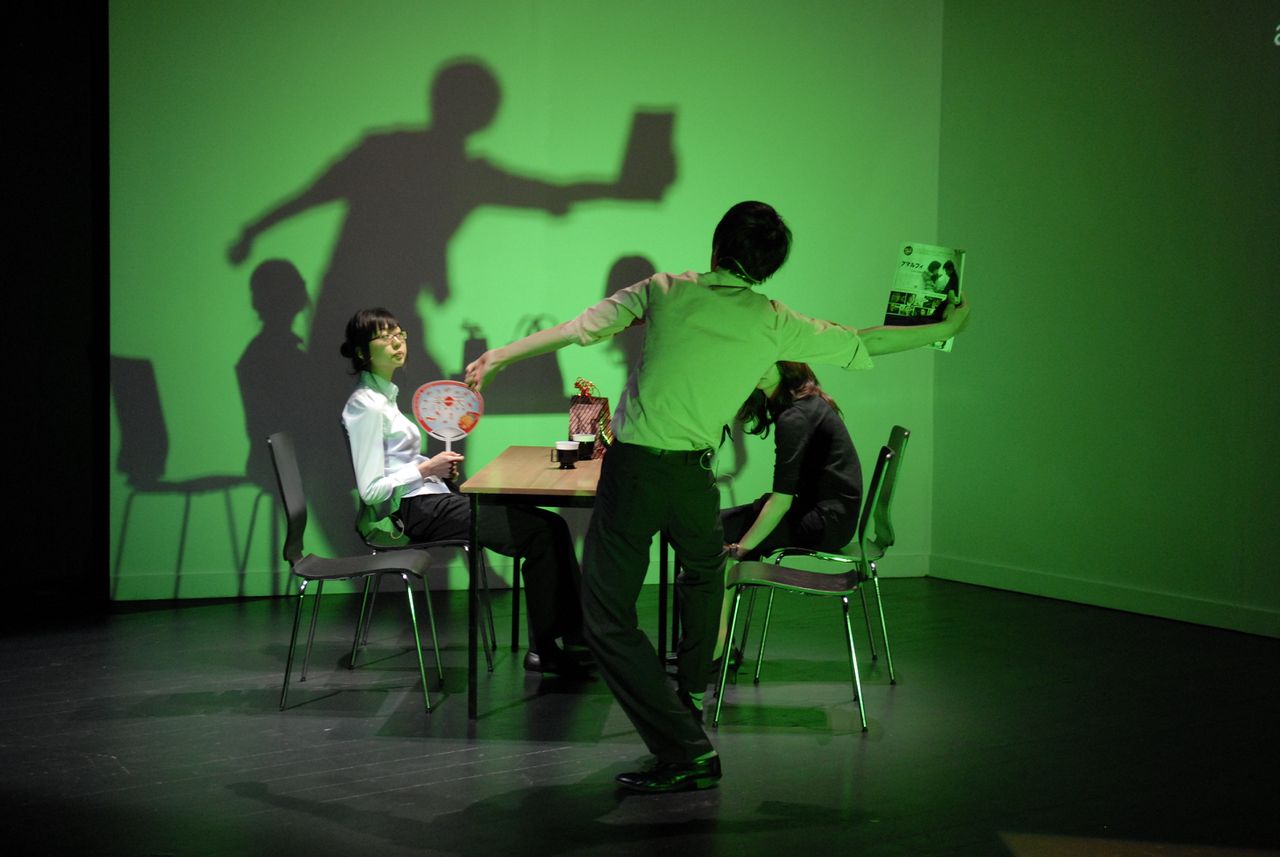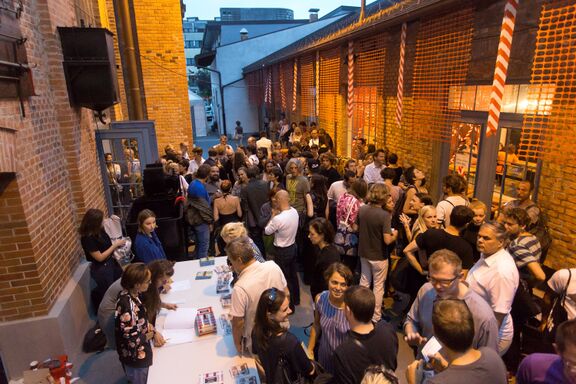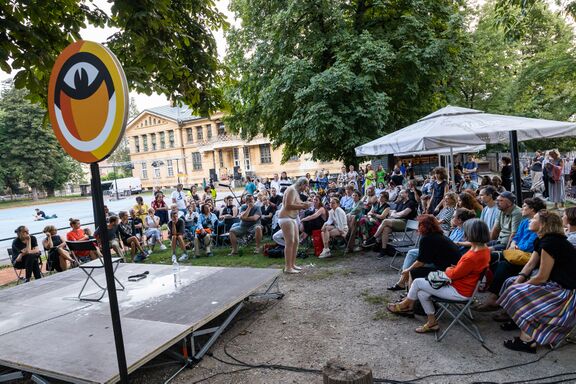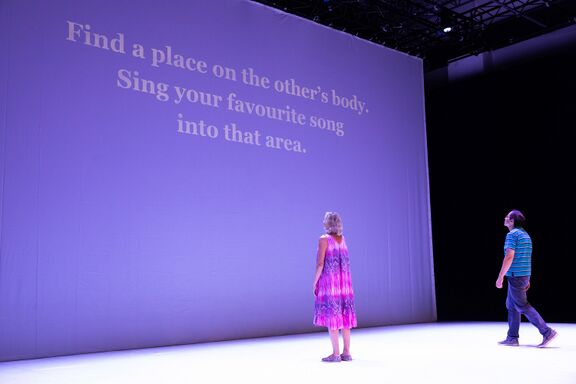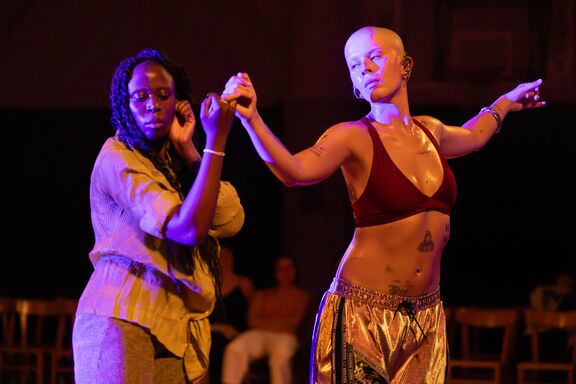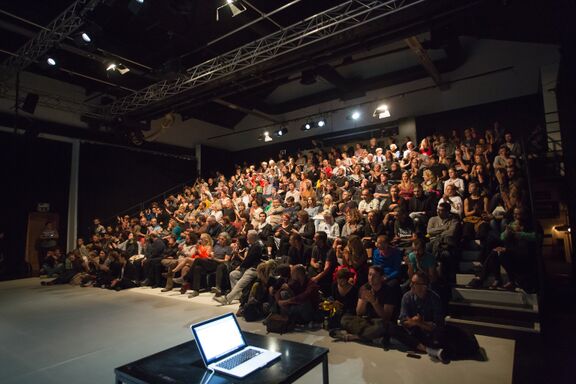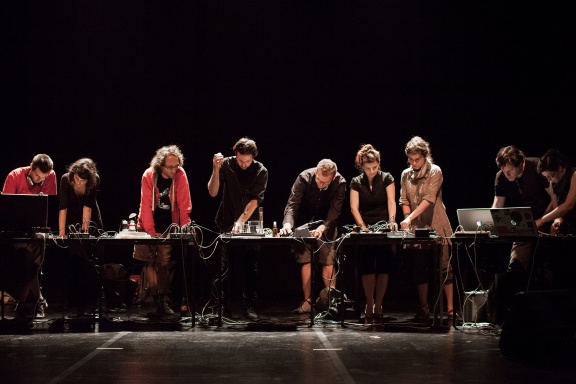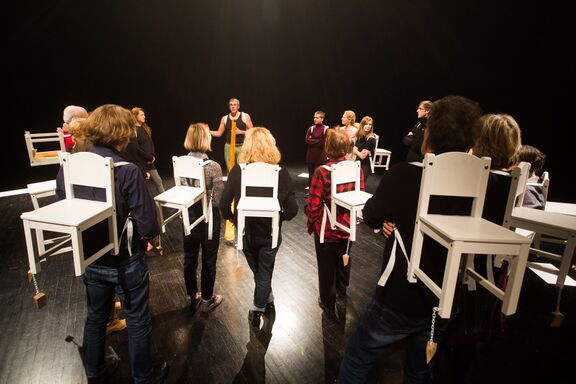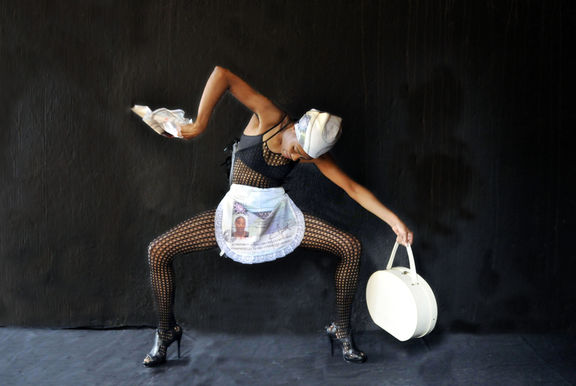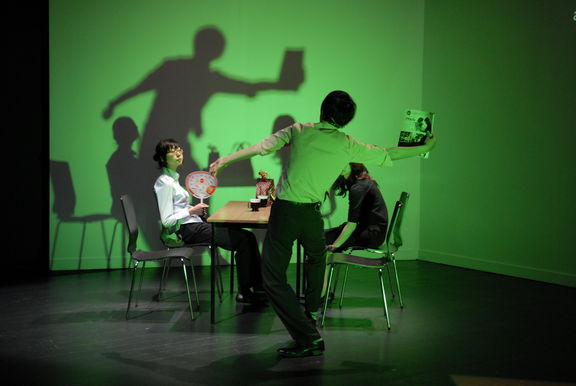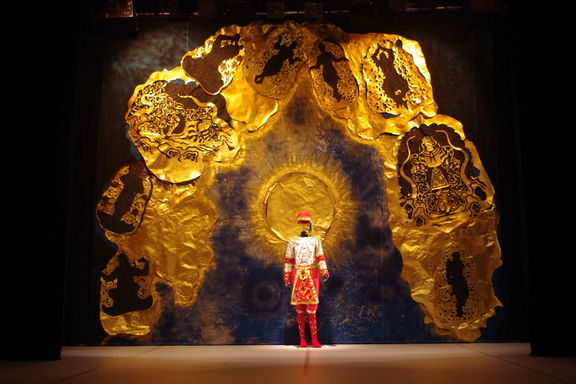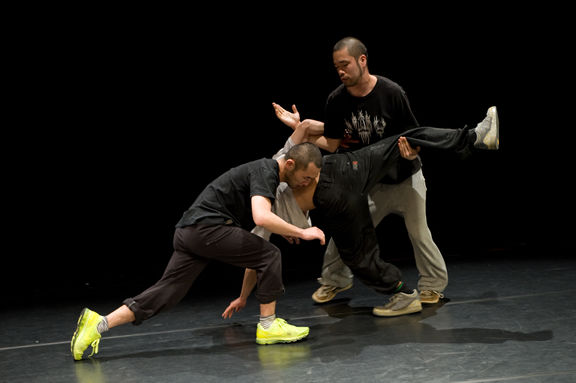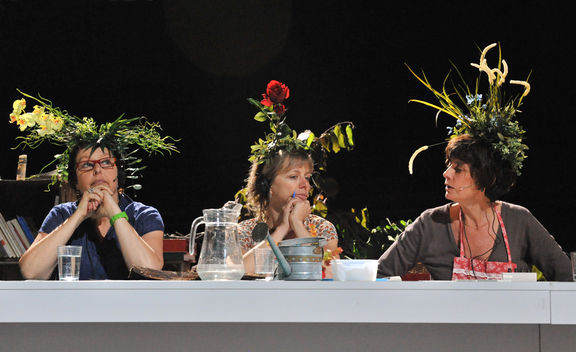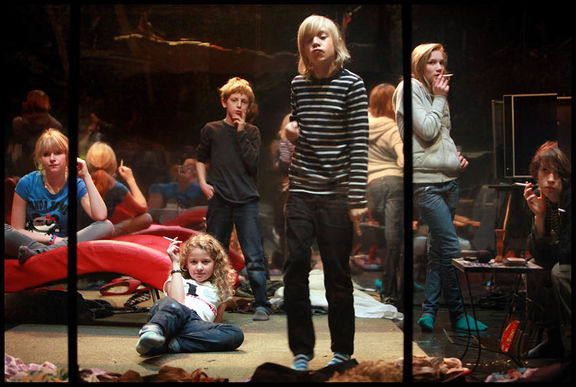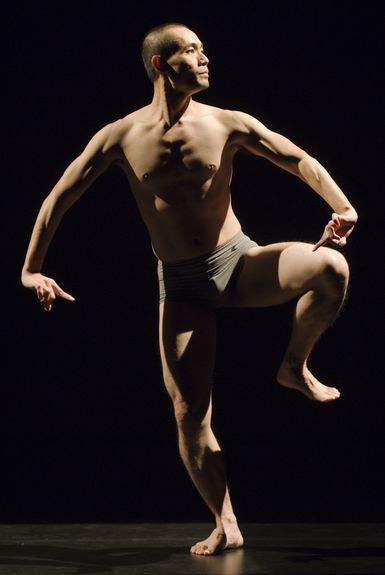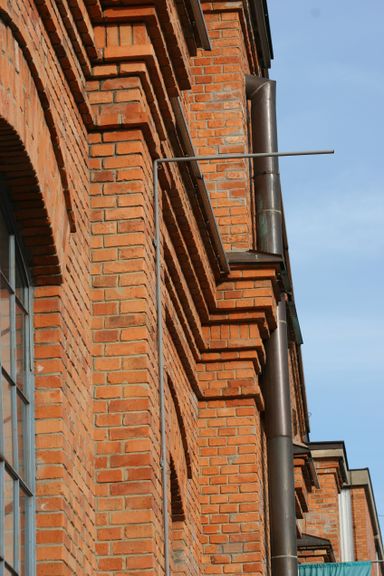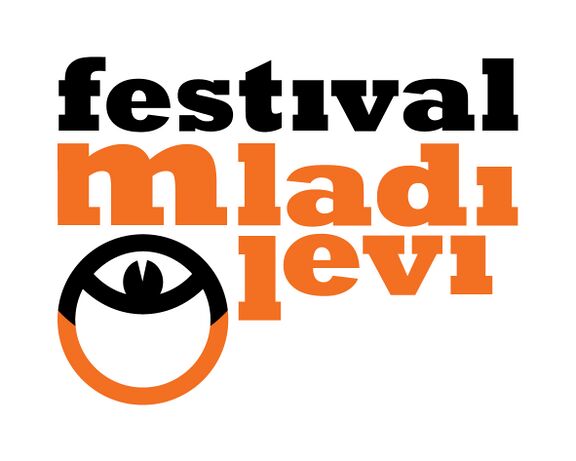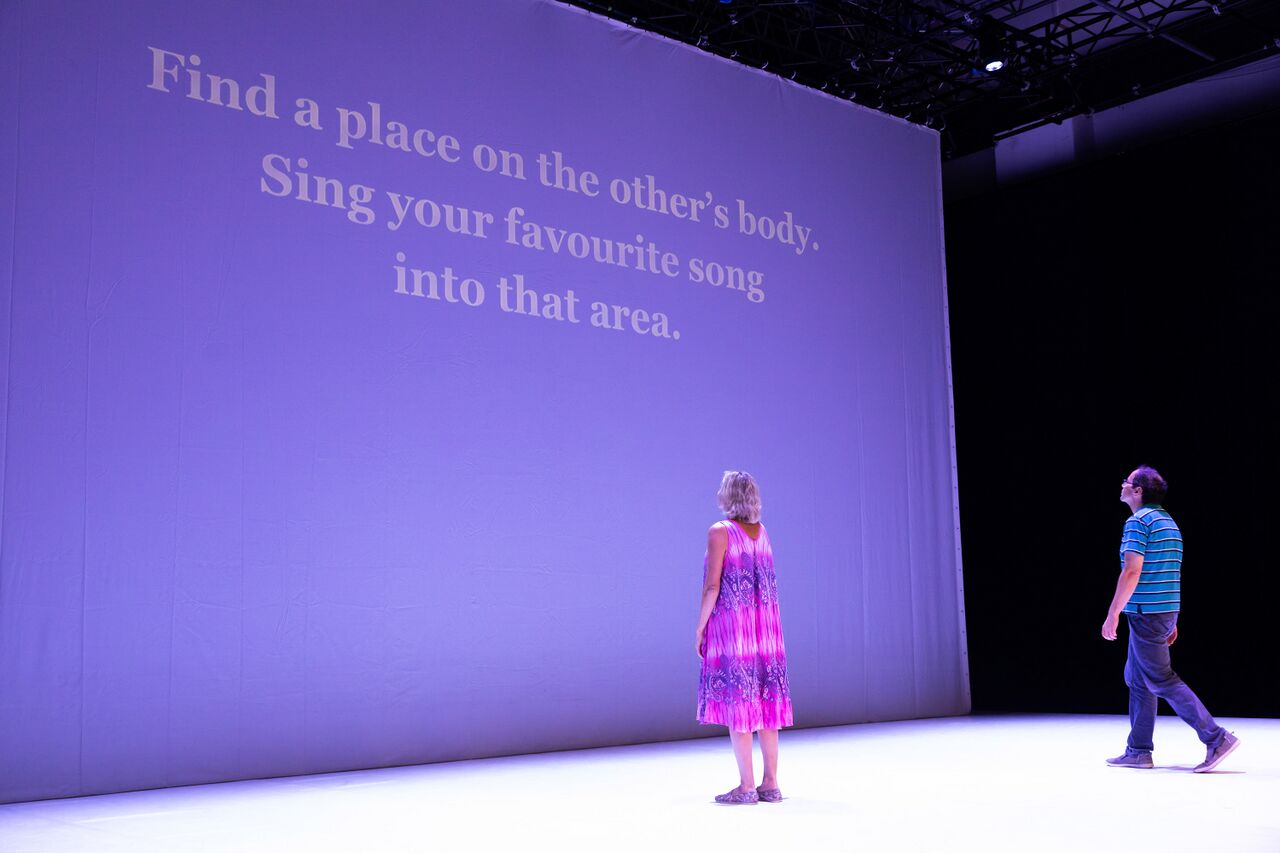Difference between revisions of "Mladi levi Festival"
Anže Zorman (talk | contribs) (Updated 2017) |
Anže Zorman (talk | contribs) |
||
| Line 41: | Line 41: | ||
{{Wide Image|Chelfitsh - dir. Toshiki Okada - Photo Dieter Hartwig.JPG}} | {{Wide Image|Chelfitsh - dir. Toshiki Okada - Photo Dieter Hartwig.JPG}} | ||
| − | The [[Mladi levi Festival]] (in English: Young Lions Festival) is an annual international festival of contemporary theatre and dance. Organised by the [[Bunker Institute]], it presents original approaches to theatre and dance, focusing on talented and emerging stage performers, along with presenting already established progressive authors. It takes place every end of the summer | + | The [[Mladi levi Festival]] (in English: Young Lions Festival) is an annual international festival of contemporary theatre and dance. Organised by the [[Bunker Institute]], it presents original approaches to theatre and dance, focusing on talented and emerging stage performers, along with presenting already established progressive authors. It takes place every end of the summer and was initiated in [[established::1998]] under the auspices of the international network Junge Hunde. |
The festival has a distinctive atmosphere, marked with creativity and vibrant spirit, and social nature. It is an interdisciplinary place of exchange and co-operations, extending beyond the habitual local or international concepts. | The festival has a distinctive atmosphere, marked with creativity and vibrant spirit, and social nature. It is an interdisciplinary place of exchange and co-operations, extending beyond the habitual local or international concepts. | ||
}} | }} | ||
| − | == | + | === Venues === |
| − | + | In the past Mladi levi was utilising various venues across Ljubljana, among them the [[Railway Museum of Slovenia]] and [[Tovarna Rog]], thus presenting new contemporary productions in juxtaposition with historical heritage. As of 2004 most of the performances are taking place at the [[Stara Elektrarna - Old Power Station|Old Power Station]] and the [[Španski borci Culture Centre]]. | |
| + | |||
| + | ==Principles== | ||
In order to create the circumstances where artists and audiences can meet, exchange experiences, and develop future collaborations, the festival invites artists to stay in Ljubljana for the entire length of the festival, giving them a chance to see each other's work, to have the time and opportunity to talk to other artists and audience members in an informal way, and to plan future collaborations. | In order to create the circumstances where artists and audiences can meet, exchange experiences, and develop future collaborations, the festival invites artists to stay in Ljubljana for the entire length of the festival, giving them a chance to see each other's work, to have the time and opportunity to talk to other artists and audience members in an informal way, and to plan future collaborations. | ||
| − | |||
| − | |||
| − | |||
| − | |||
| − | |||
| − | |||
== Programme == | == Programme == | ||
| Line 64: | Line 60: | ||
=== Festival journal === | === Festival journal === | ||
| − | During some editions the festival journal ''Arena'' was published, covering the festival's performances. The contributions were mainly written by young writers in collaboration with the [[Maska Magazine]]. In 2010 it was available also on-line on the [[Sigledal.org - Slovene theatre portal]]. For the 2017 yet another outlet was created, a website portal for criticism called Kriterij. | + | During some editions the festival journal ''Arena'' was published, covering the festival's performances. The contributions were mainly written by young writers in collaboration with the [[Maska Magazine]]. In 2010 it was available also on-line on the [[Sigledal.org - Slovene theatre portal]]. For the 2017 yet another outlet was created, a website portal for criticism called Kriterij. |
| − | + | ||
| − | ==Collaborations== | + | ===Collaborations=== |
The festival collaborates with producers and groups such as [[Mini Theatre]], [[Betontanc]], [[Via Negativa]]. The festival also presented three emerging makers, former participants of the N[[omad Dance Academy Slovenia]], [[ProstoRož]], and so on. | The festival collaborates with producers and groups such as [[Mini Theatre]], [[Betontanc]], [[Via Negativa]]. The festival also presented three emerging makers, former participants of the N[[omad Dance Academy Slovenia]], [[ProstoRož]], and so on. | ||
Revision as of 19:10, 31 August 2017
Venues
In the past Mladi levi was utilising various venues across Ljubljana, among them the Railway Museum of Slovenia and Tovarna Rog, thus presenting new contemporary productions in juxtaposition with historical heritage. As of 2004 most of the performances are taking place at the Old Power Station and the Španski borci Culture Centre.
Principles
In order to create the circumstances where artists and audiences can meet, exchange experiences, and develop future collaborations, the festival invites artists to stay in Ljubljana for the entire length of the festival, giving them a chance to see each other's work, to have the time and opportunity to talk to other artists and audience members in an informal way, and to plan future collaborations.
Programme
The festival has thus far hosted authors such as Martine Pisani, Jérôme Bel, Ivo Dimchev, Eduard Gabia, Vera Mantero, Vitor Rua & Nuno Rebelo, Camille Boitel, the collective Les SlovaKs, the collective 1927, Rimini Protokoll, Ivica Buljan, etc., as well as organised a number of round-tables and discussions.
Festival journal
During some editions the festival journal Arena was published, covering the festival's performances. The contributions were mainly written by young writers in collaboration with the Maska Magazine. In 2010 it was available also on-line on the Sigledal.org - Slovene theatre portal. For the 2017 yet another outlet was created, a website portal for criticism called Kriterij.
Collaborations
The festival collaborates with producers and groups such as Mini Theatre, Betontanc, Via Negativa. The festival also presented three emerging makers, former participants of the NOmad Dance Academy Slovenia, ProstoRož, and so on.
In the frame of the Mediterranean experiment SOSTENUTO, th2 2009 edition of the festival also organised the project My Street, within which a street exchange focused on all sorts of exchange and sharing on the basis of solidarity in a direct and money-free spirit.
See also
External links
- Mladi levi Festival web page (in English)
- Bunker Institute website



